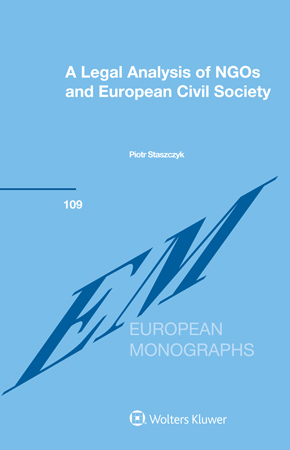
A Legal Analysis of NGOs and European Civil Society is the first attempt to present the significance of nongovernmental organizations (NGOs) in the light of the postulate of democratization of the European Union’s internal procedures and of strengthening the European identity by structuring cooperation of civil society representatives across national borders. Amid widespread awareness and discussion of “the democratic deficit” and “shrinking civil space,” the role of NGOs becomes increasingly important. Yet the precise legal status of such bodies is ill-defined. This book presents a thorough commentary and analysis of the position of NGOs and European civil society in the EU constitutional system, bringing to the fore existing and desirable means of public participation in EU lawmaking.
What’s in this book:
Recognizing that NGOs have historically been designed to meet the ends of civil society, the analysis focuses on the following topics and issues:
How this will help you:
In its thorough examination of legal tools that can respond to the “democratic deficit,” this book makes a distinctive contribution to the public debate on the future of the EU, especially in the context of emerging threats to further integration. It will prove to be of great value not only to civil activists, academics and policymakers but also to everyone interested in European integration and affordance for social participation.